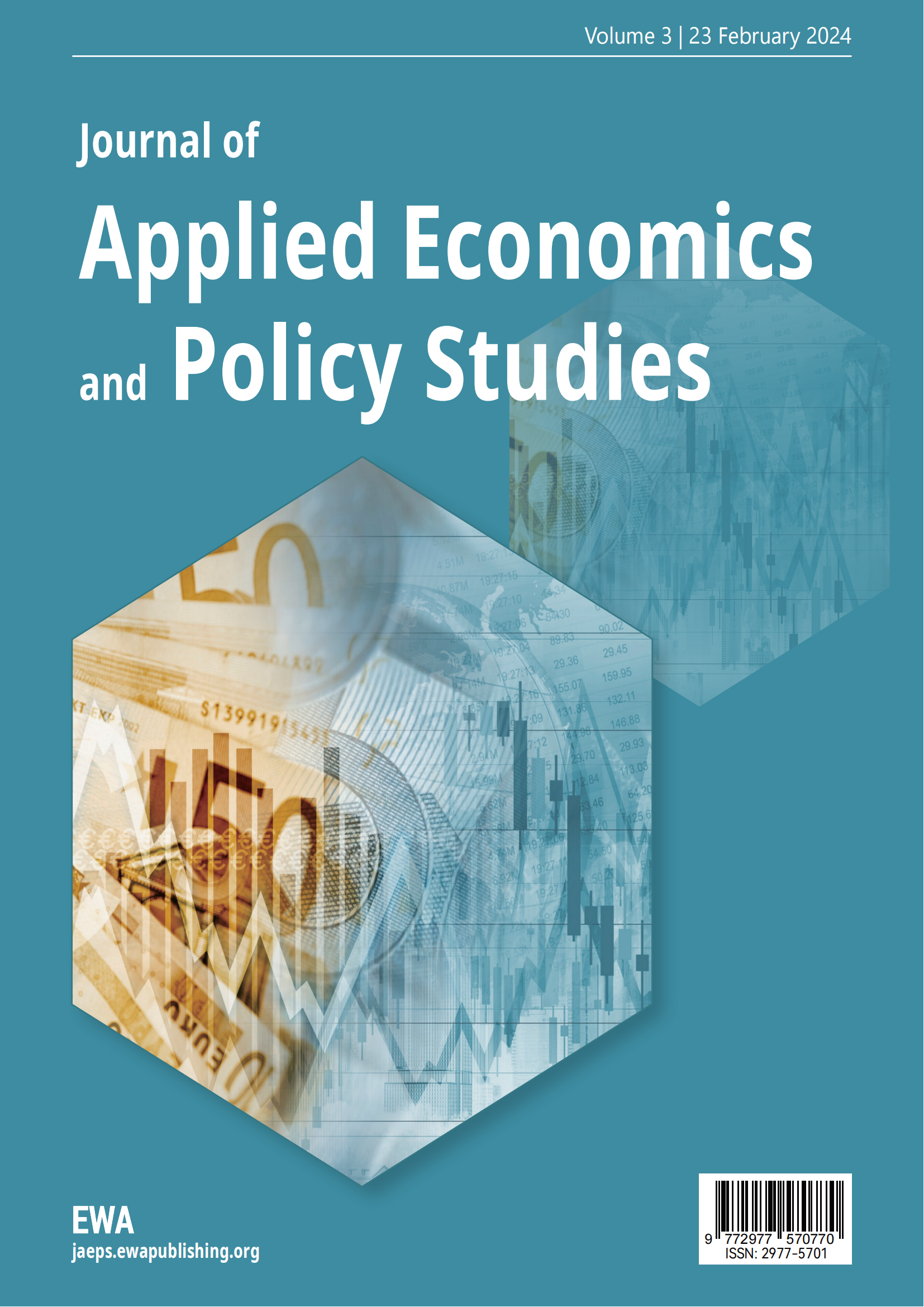1. Introduction
The International Institute for Climate Science's Global Carbon Project predicts that global CO2 emissions might exceed 40.6 billion tons in 2022, which would rank second highest in history only behind 2019. Burning fossil fuels including coal, oil, and natural gas is the major cause of carbon dioxide emissions (Liu et al., 2021). It is difficult to accomplish energy conservation and emission reduction if humanity does not accelerate the energy revolution and modify the energy structure that is dominated by fossil fuels. Undoubtedly, the promotion of the low-carbon energy transition and the achievement of global carbon neutrality are both aided by renewable energy (Liu et al., 2021). The development of renewable energy has emerged as a key strategy for achieving energy security and sustainable development in light of the world's rising energy demand. Solar energy, wind energy, water energy, and other forms of renewable energy have unrivaled benefits, such as lowering greenhouse gas emissions and environmental damage. Energy consumption has rapidly expanded in China as a result of the country's fast urbanization and industrialization, and the overuse of conventional coal and other resources has had a negative impact on the environment and public health. In fact, one key policy option for reaching carbon neutrality is to speed up the substitution of fossil fuels with renewable energy. As a result, (Guo et al.,2023) predict that technological advancement and industrial innovation based on renewable energy will play a significant role in the sustained growth of the global economic system. To change the energy structure, lessen reliance on fossil fuels, and enhance environmental quality, the Chinese government aggressively encourages the growth of renewable energy.
Since the reform and opening up, China has achieved outstanding progress in terms of economic growth. However, fast economic expansion has also resulted in a sharp rise in energy use, which has given rise to concerns about energy security and environmental sustainability. Energy conservation and emission reduction are crucial components of green growth, which is how China's economy is currently transitioning to sustainable development. Through a series of development goals and plans, the Chinese government has not only pursued economic growth, but also emphasized a green and sustainable development path. For instance, it is explicitly suggested to advance the green energy revolution, raise the share of non-fossil energy, reduce carbon emissions, and other objectives in the "13th Five-Year Plan". In addition, it was noted in the report to the 19th CPC National Congress that China will set up a sound economic framework to support circular, low-carbon, and green growth. For energy conservation and emission reduction, scientific and effective economic target design is one of them (Ge et al., 2020).
In China's development plan, striking a balance between economic development and environmental conservation has taken on significant importance. At the same time, technological development based on renewable energy is rapidly playing a significant role in propelling global economic growth. The global competition with oil as the core will change and gradually transition into a low-carbon technological value chain with renewable energy as the core in the context of the progressive replacement of fossil energy by renewable energy. As a result, renewable energy may be employed as a fresh force to alter the global competitive environment and rule global geopolitics (Lin, and Zhou,2023).
The use of traditional energy is faced with many challenges, including stability, flexibility, low proportion of renewable energy, high energy cost, and integration challenges due to the variability of renewable resources (Guo et al., 2023). To the author's knowledge, however, very few studies have examined the connection between EGT and the RED, in an effort to determine the ideal balance between EGT and the usage of renewable energy. This study is dedicated to overcoming obstacles and investigating the effects of EGT on RED and the link between the two using empirical research methodologies in order to fill this research gap. The government is also keen on industries that can bring economic benefits and increase productive investment, such as real estate and infrastructure construction, given the growing problem of global climate change and the pressure China is under regarding energy consumption and environmental issues (Fu et al., 2014; Liu et al., 2020). According to the reality of China, many regions with abundant natural resources have long relied on coal and other fossil fuels to support economic growth, such as Heilongjiang and Inner Mongolia, falling victim to specialization (Wang et al., 2019; Zhang et al., 2020). It is crucial to study this topic in depth for practical reasons. We will examine if EGT are in line with the RED and whether renewable energy can aid in the green transition of economic growth by analyzing data on renewable energy, policy impact, and EGT for 2003–2019.
The study's minor contribution is to offer an empirical analysis of the connection between RED and China's EGT. We will first highlight potential inconsistencies and areas where EGT and RED, renewable energy can coexist through the use of specific data and examples, and we will offer academics, corporate strategists, and government policymakers’ workable solutions to further sustainable development. Second, our study supports China's sustainable development in the energy and environmental sectors by better balancing EGT and environmental conservation.
2. Literature Review and Theoretical Analysis
An important area of economics research is the connection between economic growth and energy usage. Energy consumption often rises along with economic growth because people need more energy to sustain the expansion of economic activities. Traditional energy sources come from fossil fuels, but because of their finite supply and negative effects on the environment, nations are looking for alternative environmentally friendly energy sources, such renewable energy. The share of renewable energy in total energy consumption is steadily rising due to cost reductions and technological advancements in the field, and it is becoming a significant alternative to traditional fossil fuels. Renewable energy does, however, demand a longer payback period and somewhat high capital costs when compared to conventional fuels (Li et al., 2022). Countries must reconcile the relationship between energy consumption and sustainable development in the context of economic growth. The promotion of the use of renewable energy is constrained by the unpredictability of economic policy (Liu et al., 2020; Sohail et al., 2021; Koengkan et al., 2020). In the meantime, the use of renewable energy is actively encouraged by the uncertainty of economic policies (Wei et al.,2021). These findings have been supported by a number of research by Refs (Ko and Lee, 2015; Christou et al., 2017; Guo et al., 2018; Choi et al., 2021; Lensink, 2001). In addition, some research note that the uncertainty of economic policies would also deter investment and financial resources (Liu et al.,2020). Due to the technology that is being transferred from one nation to another as a result of economic globalization (Koengkan et al., 2020; Padhan et al., 2020; Gozgor et al., 2020); The NARDL method was used to examine the impact of financial development on economic renewable energy consumption in the United States over the period of 1975q1-2019q4, despite the belief in some studies that economic globalization has little to no effect on energy consumption (Lahiani et al., 2021). According to Asongu et al. (2021) the usage of renewable energy has greatly expanded as a result of financial development. The effect of financial development on the usage of renewable energy in sub-Saharan economies is investigated using the GMM model. According to their findings (Polat et al., 2021) financial development can encourage the use of renewable energy. According to empirical data, the use of renewable energy and financial development are positively associated (Raghutla et al., 2021). In addition, four fundamental ideas—the growth hypothesis, the conservation hypothesis, the interdependence hypothesis, and the neutral hypothesis—define the relationship between energy consumption and economic growth (Nyiwul et al., 2017). The conservation theory, on the other hand, asserts that there is only one causal link between economic growth and energy use (Kraft et al., 1978). According to the interdependence hypothesis (Attiaoui et al., 2017), energy use and economic growth are mutually influenced, in contrast to the neutral hypothesis (Akarcat et al., 1980), which maintains that there is no relationship between the two.
The nation's EGT will affect energy policy and the proliferation of RED. A complicated problem is how EGT will affect RED. On the one hand, pursuing rapid economic expansion would result in higher energy consumption, which might increase reliance on conventional energy sources and limit the growth of renewable energy. However, achieving EGT may also encourage the energy transition and the expansion of renewable energy, since these developments can offer a more ecologically friendly and long-lasting energy infrastructure for economic growth. Likewise, some nations have begun to view renewable energy as a strategic development path for achieving sustainable growth as they have come to understand the seriousness of environmental challenges. The features of sustainable growth exhibited by green development and renewable energy serve as the foundation for planning closely associated with high-quality sustainable development (Nenavath et al., 2023).
Around the world, several nations intend to boost their capacity for producing renewable energy by promoting financial development, technical innovation, and economic regulations. But increased economic policy uncertainty also slows down financial services and causes more financing initiatives to be delayed (Guo et al., 2023). We discovered that achieving EGT can have both favorable and unfavorable effects on RED. On the plus side, achieving EGT can encourage the energy transition and the RED since they can offer a more ecologically friendly and long-lasting energy infrastructure for economic growth. Additionally, to lessen reliance on finite fossil fuels and spur economic transformation, the government promotes investment in renewable energy technology. On the downside, achieving EGT often requires high energy consumption, and an excessive focus on short-term growth may result in insufficient resource allocation, which would restrict RED.
As can be seen, when a higher EGT are being set, they can encourage the RED. However, as EGT are raised to a certain level, more barriers to RED will appear, which will inhibit renewable energy. Since each region's resource endowments are varied, so are the development, exploitation, and scale of renewable energy, the mechanisms by which they affect and the effects they have on the RED also vary.Additionally, there may be a moderating effect from how the government and market interact. This demonstrates that there is a complicated, non-linear, "inverted U-shaped" link between China's RED and its objective of EGT.Based on this, we put out three hypotheses:
An "inverted U-shape" may be seen in the relationship between EGT and RED (H1).
The influence of EGT on the RED is heterogeneous. (H2).
The "inverted U-shaped" link between EGT and the advancement of RED is moderated by the interaction between the government and the market (H3).
3. Research Design
3.1. Model
This paper constructs a measurement model formula, as shown in equation (1):
 (1)
(1)
Where  and
and  represent provinces and years.
represent provinces and years.  represents renewable energy development,
represents renewable energy development,  represents economic growth targets, and
represents economic growth targets, and  represents a series of control variables that shape renewable energy development.
represents a series of control variables that shape renewable energy development.  for the constant term,
for the constant term,  and
and  for the unknown regression coefficient.
for the unknown regression coefficient.  and
and  reflect the fixed effects for the province and the year, respectively.
reflect the fixed effects for the province and the year, respectively.  stands for random disturbance.
stands for random disturbance.
3.2. Variables
Explained variable: RED. In order to achieve global carbon neutrality, the low-carbon energy transition must be driven by renewable energy (Ge et al., 2023). It is beneficial to give valuable references and direction for policy formation and future energy development by researching the growth of renewable energy. We must consider what ecological and environmental health compromises can be made in order to attain faster economic growth in light of the environmental deterioration brought on by rising carbon emissions. This has raised issues for policymakers, governments, and ecologists due to globalization, climate change, and global warming (Shahbaz et al., 1978).
Core explanatory variable: EGT. The control of economic growth by aim has been a characteristic feature of Chinese governments at all levels in the last few decades as one of the significant ways for the government to engage in the market (Yu and Pan, 2019).To direct the economy's actions throughout the year, the government typically publishes EGT at the start of each year in the government work report (Liu et al., 2019).The central government of China did not specify a target for economic growth in its 2020 Government Work Report, but in their 2021 Government Work Report, the central government and the majority of local governments did (Zhu and Lin, 2022).
Control variables: GDP, patent share, population density, ratio of fixed assets to GDP, and ratio of fiscal expenditure to GDP. The GDP is a crucial metric for determining the overall economic health and degree of development of a nation. Controlling GDP may remove the influence of economic level elements while researching the growth of renewable energy, improving the accuracy and dependability of research findings. Patents may encourage innovation in technology and the sharing of information, raise the bar for technology and industrial competitiveness, and support the growth of renewable energy sources. Large populations expand the market for products and services, but an overpopulated world results in excessive energy usage and human activity, which produces carbon dioxide emissions. The inclusion of population density as a variable in our study is therefore appropriate (Javeed et al., 2020).
Regulating variable: the relationship between government and market.In this essay, the relationship between the government and the market is important because it can help us better understand how the economy functions and give government advice for formulating policies. When employed effectively, the "visible hand" of government can play a significant role in fostering the growth of renewable energy. Additionally, the Southern Power Grid Research Center noted that a "effective market" and a "committed government" are necessary for new energy firms to participate in the electricity market (Rahman et al., 2020). This demonstrates in full how sensible it is for us to select the market-government interaction as the regulating variable.
With the exception of Hong Kong, Macao, Taiwan, Tibet, and other locations, this study is based on statistics from 30 provinces (autonomous territories and municipalities directly under the Central Government) in China from 2003 to 2019. The China Statistical Yearbook and the EPS database provided the information for this paper. The average for the development of renewable energy is 0.414, and the highest is 6.466, as shown in the table below, which provides descriptive statistics for each variable. The minimum and maximum values can also give a numerical range for determining whether the ensuing "inverted U-shape" fitting line has an inflection point.
Table 1 Description of variables
variable |
sample |
Mean |
Min |
Max |
Energy |
510 |
0.414 |
0.0005 |
6.466 |
TAR |
510 |
9.434 |
4.5 |
15 |
TAR2 |
510 |
92.401 |
20.25 |
255 |
LnGDP |
510 |
10.278 |
8.218 |
11.993 |
Lnpat |
510 |
9.176 |
4.248 |
13.176 |
Lnden |
510 |
7.693 |
4.510 |
8.750 |
Fin |
510 |
0.240 |
0.089 |
1.289 |
Ass |
510 |
0.667 |
0.018 |
1.480 |
4. Empirical Analysis
4.1. Main Regression Analysis
The final findings calculated using the baseline regression model are displayed in Table 2.The estimates for the two variables, EGT and RED, are displayed in column RE (1) of Table 2.The effects of GDP, patent ratio, population density, fixed asset to GDP and fiscal spending to GDP ratios on the RED are gradually controlled in column RE (2) of Table 2.The test results clearly demonstrate the significance of the regression equations. The results of estimation 2 specifically demonstrate that the coefficients of EGT and its quadratic term both pass the significance test at the 1% level, and the coefficient of the first order term is positive while the coefficient of the second term is negative, i.e., the relationship between the EGT and RED exhibits a "inverted U-shaped" relationship, which is consistent with the theoretical relationship model proposed by Assu. Additionally, based on the method for calculating inflection points, it can be deduced that the inflection point value for the "inverted U-shape" effect of EGT on RED is 13.556.
Table 2: Descriptive statistics of main variables
RE (1) |
RE (2) |
|
EGT |
0.299***(4.10) |
0.305***(3.91) |
EGT2 |
-0.012***(-3.40) |
-0.012***(-3.22) |
LnGDP |
0.099*(1.86) |
|
Lnpat |
0.009(0.16) |
|
Lnden |
0.024(1.01) |
|
Fin |
0.053(0.37) |
|
Ass |
-0.226**(-2.11) |
|
Time effect |
Control |
Control |
Regional effect |
Control |
Control |
Constant term |
-1.386***(-3.67) |
-2.521***(-3.74) |
R2 |
0.127 |
0.143 |
Obs |
510 |
510 |
4.2. Regional Heterogeneity Analysis
The intermediate effect of EGT in stimulating RED may be heterogeneous. Table 3 displays the results of a test of the intermediate impact of the two areas after dividing China into the eastern region and the central and western region.
Table 3: Results of regional heterogeneity test
The east(1) |
Midwest(2) |
|
EGT |
-0.667(-1.31) |
0.430***(3.93) |
EGT2 |
0.004(1.38) |
-0.017***(-3.18) |
LnGDP |
-0.009(-0.36) |
0.138(1.34) |
Lnpat |
0.024(0.79) |
-0.080(-0.96) |
Lnden |
0.029(0.94) |
-0.107**(-1.97) |
Fin |
0.026(0.48) |
-0.410(-0.13) |
Ass |
-0.004(-0.06) |
-0.647***(-3.72) |
Time effect |
Control |
Control |
Regional effect |
Control |
Control |
Constant term |
0.096(0.24) |
-1.769(-1.41) |
R2 |
0.130 |
0.229 |
Obs |
187 |
323 |
Note: (1) * * *, * * and * are statistically significant at 1%, 5% and 10%, respectively. (2) The numbers in brackets are standard errors, the same below.
The reasons for this regional heterogeneity may be as follows: in the eastern region of China, EGT is lower than that in the central and western regions, and the development level is higher, so the marginal improvement effect of EGT on the RED is not obvious. However, the EGT of the central and western regions of China is higher, and the economic development level is lower than that of the eastern regions, and the economic development level of many regions needs to be improved. The empirical results show that the impact of the EGT on RED in the central and western regions is "inverted U-shaped", and when EGT reaches a certain height, RED will be inhibited.
4.3. Market Regulation
There are few in-depth studies on how changes in the interaction between government and market effect RED, despite the fact that there are numerous elements that influence RED in the study of EGT. The final empirical findings demonstrate an inverted U-shaped pattern in the effect of EGT on RED through the link between government and market.
According to our analysis, the relationship between government and business has become distorted as a result of the government's excessive role in the actual market economy. This has resulted in institutional limitations on the creation and RED, and how to restore this relationship is a significant barrier to RED. EGT that is too ambitious can harm the relationship between the government and the market, which would impede RED. For instance, achieving high EGT might result in more market rivalry, which would make traditional energy businesses more accessible to resources and funding, compromising the viability of the renewable energy industry. In addition, high EGT may also lead to higher energy prices, which will reduce the economics of renewable energy and make it difficult to gain a competitive advantage in the market.
Table 4: Table of regulating effect
RE |
RE |
|
EGT |
0.207**(2.50) |
0.218**(2.48) |
EGT2 |
-0.004(-0.75) |
-0.004(-0.80) |
TAR*MARKET |
0.016**(2.40) |
0.014**(2.16) |
TAR2*MARKET |
-0.001**(-2.36) |
-0.001**(-2.18) |
LnGDP |
0.101*(1.91) |
|
Lnpat |
-0.003(-0.06) |
|
Lnden |
0.025(1.09) |
|
Fin |
0.040(0.28) |
|
Ass |
-0.182*(-1.67) |
|
Time effect |
Control |
Control |
Regional effect |
Control |
Control |
Constant term |
-1.453***(-3.84) |
-2.524***(-3.73) |
R2 |
0.137 |
0.151 |
Obs |
510 |
510 |
4.4. Endogeneity and Robustness Test
The endogeneity and robustness of the benchmark results were tested by means of one-stage lag of the explanatory variables, replacement of the explained variables and instrumental variables, etc., in order to overcome the problems of parameter endogeneity and missing indicators in the model and ensure the reliability of the research results.
4.4.1. Explanatory Variables Lag by One Period
First, the explanatory variables were delayed for one period, and the explanatory variables and control variables were selected for robustness test in the current period, as shown in Table 5. Both the primary and secondary items of EGT passed the 1% significance test. It is shown that the estimated results of one stage lag of explanatory variables are consistent with the basic estimated results above.
4.4.2. Replace the Explained Variable
The above estimates are tested again by replacing the explained variables. In this paper, the explained variable is replaced with renewable energy and tested, as shown in Table 5. Both the primary and secondary items of EGT pass the 1% significance test, which once again validates the main conclusions of this paper.
Table 5: Robustness test table
One-phase lag |
Change variable |
Instrumental variable method |
|
EGT |
0.274***(3.21) |
230.896***(3.48) |
0.446**(2.41) |
EGT2 |
-0.010**(-2.47) |
-8.443***(-2.63) |
-0.017**(-2.00) |
LnGDP |
0.220***(3.28) |
67.043(1.49) |
0.154**(2.29) |
Lnpat |
-0.009(-0.15) |
-40.018(-0.85) |
-0.038(-0.71) |
Lnden |
0.009(0.37) |
5.380(0.27) |
-0.029(1.44) |
Fin |
0.187(1.14) |
-51.759(-0.42) |
0.098(1.08) |
Ass |
-0.357***(-3.18) |
31.648(0.35) |
-0.360***(-3.14) |
Time effect |
Control |
Control |
Control |
Time effect |
Control |
Control |
Control |
Time effect |
-3.233***(-4.33) |
-1663.863***(-2.90) |
-3.945***(-4.58) |
Cragg-DF |
147.067 |
||
R2 |
0.171 |
0.227 |
0.910 |
Obs |
480 |
510 |
480 |
4.4.3. Instrumental Variable Method
In this paper, the lag phase of the primary term and the lag phase of the secondary term of EGT are selected as instrumental variables, and the 2SLS method is used for regression; the results show that there is no weak instrumental variable problem. On the basis of this, we will use the method of instrumental variables to reduce the inverse causal effect on the robustness of the final data results.
5. Conclusions and Suggestions
This paper verifies the impact of EGT on the RED, analyzes the regulatory effects of government and market in this process, and examines regional heterogeneity by dividing China into eastern, central, and western regions using panel data of 30 provinces from 2003 to 2019. The findings of the study are as follows: First, a "inverted U-shape" relationship between EGT and RED is determined by the study of the fixed effects benchmark model, passing the significance test at the 1% level. Second, there is regional heterogeneity in the impact of EGT on the development of renewable energy. It is significant in the middle and western regions of China, but not in the east. Third, by using the method of one-stage lag of explanatory variables, substitution of explained variables and instrumental variables, we test the endogeneity and robustness and find that the "inverted U-shaped" influence of EGT on RED is stable, and the lag will gradually weaken. Fourth, excessive economic growth may have a negative impact on government and market relations, thus inhibiting RED.
This study makes the necessary policy suggestions based on the outcomes of the theoretical and empirical research mentioned above. First, because provinces, cities, and autonomous regions have vastly different resource endowments, each one should choose the most appropriate renewable energy source in accordance with its own EGT and long-term development plans, and use it to give the renewable energy sector a boost. Second, put more effort into overcoming the "path dependence" of energy consumption; improve the relevant institutional and legal framework; strengthen the access and transmission infrastructure for renewable energy; increase research and development of energy storage; and promote technological innovation in renewable energy. Third, we must strengthen the adaptability and sustainability of our policies. On this basis, the use of a variety of policy means to guide the coordinated development of renewable energy industry, strengthen its regional collaborative distribution, promote its moderate aggregation, so as to maximize its innovation effect.
References
[1]. Liu Y, Lin B, Xu B. Modeling the impact of energy abundance on economic growth and CO2 emissions by quantile regression: Evidence from China[J]. Energy, 2021,227:120416.
[2]. You Y, Yi L. Energy industry Carbon neutrality transition path: Corpus-based AHP-DEMATEL system modelling[J]. Energy Reports, 2022,8:25-39.
[3]. Guo W, Yang B, Ji J, et al. Green finance development drives renewable energy development: Mechanism analysis and empirical research[J]. Renewable Energy, 2023,215:118982.
[4]. Lin B, Zhou Y. How do economic growth targets affect energy consumption? The role of Chinese-style fiscal decentralization[J]. Process Safety and Environmental Protection, 2023,169:736-745.
[5]. Ge T, Ge Y, Lin S, et al. Do energy intensity reduction targets promote renewable energy development? Evidence from partially linear functional-coefficient models[J]. Energy Strategy Reviews, 2023,49:101165.
[6]. Guo W, Yang B, Ji J, et al. Green finance development drives renewable energy development: Mechanism analysis and empirical research[J]. Renewable Energy, 2023,215:118982.
[7]. Li J, Dong X, Dong K. How much does financial inclusion contribute to renewable energy growth? Ways to realize green finance in China[J]. Renewable Energy, 2022,198:760-771.
[8]. L.K. Chu, N.T.M. Le, Environmental quality and the role of economic policy uncertainty, economic complexity, renewable energy, and energy intensity: the case of G7 countries[J] Environ. Sci. Pollut. Control Ser. ,2021:1–17.
[9]. M. R. Liu, L. He, X. Liang, X. Yang, Y. Xia, Is there any difference in the impact of economic policy uncertainty on the investment of traditional and renewable energy enterprises?–A comparative study based on regulatory effects,[ J ]Clean. Prod,2020,255:120102.
[10]. Sohail M T, Xiuyuan Y, Usman A, et al. Renewable energy and non-renewable energy consumption: assessing the asymmetric role of monetary policy uncertainty in energy consumption[J]. Environmental Science and Pollution Research, 2021,28(24):31575-31584.
[11]. Koengkan M, Melo Poveda Y, Fuinhas J. Globalisation as a motor of renewable energy development in Latin America countries[J]. GeoJournal, 2020.
[12]. Padhan H, Padhang P C, Tiwari A K, et al. Renewable energy consumption and robust globalization(s) in OECD countries: Do oil, carbon emissions and economic activity matter?[J]. Energy Strategy Reviews, 2020,32:100535.
[13]. Gozgor G, Mahalik M K, Demir E, et al. The impact of economic globalization on renewable energy in the OECD countries[J]. Energy Policy, 2020,139:111365.
[14]. Acheampong A O, Boateng E, Amponsah M, et al. Revisiting the economic growth–energy consumption nexus: Does globalization matter?[J]. Energy Economics, 2021,102:105472.
[15]. Wei W, Hu H, Chang C. Economic policy uncertainty and energy production in China[J]. Environmental science and pollution research international, 2021,28(38):53544-53567.
[16]. Ko J, Lee C M. International economic policy uncertainty and stock prices: Wavelet approach ☆[J]. Economics Letters, 2015,134:118-122.
[17]. Christou C, Cuñado J, Gupta R, et al. Economic policy uncertainty and stock market returns in PacificRim countries: Evidence based on a Bayesian panel VAR model[J]. Journal of Multinational Financial Management, 2017,40:92-102.
[18]. Guo P, Zhu H, You W. Asymmetric dependence between economic policy uncertainty and stock market returns in G7 and BRIC: A quantile regression approach[J]. Finance Research Letters, 2017.
[19]. Choi S, Furceri D, Yoon C. Policy Uncertainty and Foreign Direct Investment[J]. ERN: Trade & Foreign Exchange Policies in Developing Economies (Topic), 2020.
[20]. Lensink R. Financial Development, Uncertainty and Economic Growth[J]. De Economist, 2001,149(3):299-312.
[21]. Lahiani A, Mefteh-Wali S, Shahbaz M, et al. Does financial development influence renewable energy consumption to achieve carbon neutrality in the USA?[J]. Energy Policy, 2021,158:112524.
[22]. Asongu S A, Odhiambo N M. Inequality, finance and renewable energy consumption in Sub-Saharan Africa[J]. Renewable Energy, 2021,165:678-688.
[23]. Polat B. The Impact of Financial Development on Renewable and Non-Renewable Energy Consumption[C], 2021.
[24]. Raghutla C, Shahbaz M, Chittedi K R, et al. Financing clean energy projects: New empirical evidence from major investment countries[J]. Renewable Energy, 2021,169:231-241.
[25]. Nyiwul L. Economic performance, environmental concerns, and renewable energy consumption: drivers of renewable energy development in Sub-Sahara Africa[J]. Clean Technologies and Environmental Policy, 2017,19(2):437-450.
[26]. Kraft J, Kraft A. On the relationship between energy and GNP. J Energy[J] .1978,3:401–3.
[27]. Akarca A T, Long T V. On the Relationship Between Energy and GNP: A Reexamination[J]. The Journal of Energy and Development, 1980,5(2):326-331.
[28]. Attiaoui I, Toumi H, Ammouri B, et al. Causality links among renewable energy consumption, CO2 emissions, and economic growth in Africa: evidence from a panel ARDL-PMG approach[J]. Environmental Science and Pollution Research, 2017,24:13036-13048.
[29]. Nenavath S, Mishra S. Impact of green finance and fintech on sustainable economic growth: Empirical evidence from India[J]. Heliyon, 2023,9.
[30]. Guo W, Yang B, Ji J, et al. Green finance development drives renewable energy development: Mechanism analysis and empirical research[J]. Renewable Energy, 2023.
[31]. Hong-bo T. The Mystery of Coexistence of Rapid Economic Growth and Lag of Service Industry in China———Based on the Perspective of Sector TFP[J]. China Industrial Economy, 2012.
[32]. Liu S, Wang X, Huang L. Economic growth targets drive investment: evidence from China’s prefecture-level cities during 2001–2016.[J].Financial Res ,2019.
[33]. Zhu J, Lin B. Economic growth pressure and energy efficiency improvement: Empirical evidence from Chinese cities[J]. Applied Energy, 2022,307:118275.
[34]. Shahbaz M, Nasir M A, Hille E, et al. UK's net-zero carbon emissions target: Investigating the potential role of economic growth, financial development, and R&D expenditures based on historical data (1870–2017)[J]. Technological Forecasting and Social Change, 2020,161:120255.
[35]. Berka A L, Creamer E. Taking stock of the local impacts of community owned renewable energy: A review and research agenda[J]. Renewable and Sustainable Energy Reviews, 2018,82:3400-3419.
[36]. Rahman M M, Saidi K, Mbarek M B. Economic growth in South Asia: the role of CO2 emissions, population density and trade openness[J]. Heliyon, 2020,6(5):e3903.
[37]. Javeed S A, Latief R, Lefen L. An analysis of relationship between environmental regulations and firm performance with moderating effects of product market competition: Empirical evidence from Pakistan[J]. Journal of Cleaner Production, 2020,254:120197.
Cite this article
Gao,Y. (2024). An Empirical Study of Economic Growth Target on Renewable Energy Development in China. Journal of Applied Economics and Policy Studies,3,29-39.
Data availability
The datasets used and/or analyzed during the current study will be available from the authors upon reasonable request.
Disclaimer/Publisher's Note
The statements, opinions and data contained in all publications are solely those of the individual author(s) and contributor(s) and not of EWA Publishing and/or the editor(s). EWA Publishing and/or the editor(s) disclaim responsibility for any injury to people or property resulting from any ideas, methods, instructions or products referred to in the content.
About volume
Journal:Journal of Applied Economics and Policy Studies
© 2024 by the author(s). Licensee EWA Publishing, Oxford, UK. This article is an open access article distributed under the terms and
conditions of the Creative Commons Attribution (CC BY) license. Authors who
publish this series agree to the following terms:
1. Authors retain copyright and grant the series right of first publication with the work simultaneously licensed under a Creative Commons
Attribution License that allows others to share the work with an acknowledgment of the work's authorship and initial publication in this
series.
2. Authors are able to enter into separate, additional contractual arrangements for the non-exclusive distribution of the series's published
version of the work (e.g., post it to an institutional repository or publish it in a book), with an acknowledgment of its initial
publication in this series.
3. Authors are permitted and encouraged to post their work online (e.g., in institutional repositories or on their website) prior to and
during the submission process, as it can lead to productive exchanges, as well as earlier and greater citation of published work (See
Open access policy for details).
References
[1]. Liu Y, Lin B, Xu B. Modeling the impact of energy abundance on economic growth and CO2 emissions by quantile regression: Evidence from China[J]. Energy, 2021,227:120416.
[2]. You Y, Yi L. Energy industry Carbon neutrality transition path: Corpus-based AHP-DEMATEL system modelling[J]. Energy Reports, 2022,8:25-39.
[3]. Guo W, Yang B, Ji J, et al. Green finance development drives renewable energy development: Mechanism analysis and empirical research[J]. Renewable Energy, 2023,215:118982.
[4]. Lin B, Zhou Y. How do economic growth targets affect energy consumption? The role of Chinese-style fiscal decentralization[J]. Process Safety and Environmental Protection, 2023,169:736-745.
[5]. Ge T, Ge Y, Lin S, et al. Do energy intensity reduction targets promote renewable energy development? Evidence from partially linear functional-coefficient models[J]. Energy Strategy Reviews, 2023,49:101165.
[6]. Guo W, Yang B, Ji J, et al. Green finance development drives renewable energy development: Mechanism analysis and empirical research[J]. Renewable Energy, 2023,215:118982.
[7]. Li J, Dong X, Dong K. How much does financial inclusion contribute to renewable energy growth? Ways to realize green finance in China[J]. Renewable Energy, 2022,198:760-771.
[8]. L.K. Chu, N.T.M. Le, Environmental quality and the role of economic policy uncertainty, economic complexity, renewable energy, and energy intensity: the case of G7 countries[J] Environ. Sci. Pollut. Control Ser. ,2021:1–17.
[9]. M. R. Liu, L. He, X. Liang, X. Yang, Y. Xia, Is there any difference in the impact of economic policy uncertainty on the investment of traditional and renewable energy enterprises?–A comparative study based on regulatory effects,[ J ]Clean. Prod,2020,255:120102.
[10]. Sohail M T, Xiuyuan Y, Usman A, et al. Renewable energy and non-renewable energy consumption: assessing the asymmetric role of monetary policy uncertainty in energy consumption[J]. Environmental Science and Pollution Research, 2021,28(24):31575-31584.
[11]. Koengkan M, Melo Poveda Y, Fuinhas J. Globalisation as a motor of renewable energy development in Latin America countries[J]. GeoJournal, 2020.
[12]. Padhan H, Padhang P C, Tiwari A K, et al. Renewable energy consumption and robust globalization(s) in OECD countries: Do oil, carbon emissions and economic activity matter?[J]. Energy Strategy Reviews, 2020,32:100535.
[13]. Gozgor G, Mahalik M K, Demir E, et al. The impact of economic globalization on renewable energy in the OECD countries[J]. Energy Policy, 2020,139:111365.
[14]. Acheampong A O, Boateng E, Amponsah M, et al. Revisiting the economic growth–energy consumption nexus: Does globalization matter?[J]. Energy Economics, 2021,102:105472.
[15]. Wei W, Hu H, Chang C. Economic policy uncertainty and energy production in China[J]. Environmental science and pollution research international, 2021,28(38):53544-53567.
[16]. Ko J, Lee C M. International economic policy uncertainty and stock prices: Wavelet approach ☆[J]. Economics Letters, 2015,134:118-122.
[17]. Christou C, Cuñado J, Gupta R, et al. Economic policy uncertainty and stock market returns in PacificRim countries: Evidence based on a Bayesian panel VAR model[J]. Journal of Multinational Financial Management, 2017,40:92-102.
[18]. Guo P, Zhu H, You W. Asymmetric dependence between economic policy uncertainty and stock market returns in G7 and BRIC: A quantile regression approach[J]. Finance Research Letters, 2017.
[19]. Choi S, Furceri D, Yoon C. Policy Uncertainty and Foreign Direct Investment[J]. ERN: Trade & Foreign Exchange Policies in Developing Economies (Topic), 2020.
[20]. Lensink R. Financial Development, Uncertainty and Economic Growth[J]. De Economist, 2001,149(3):299-312.
[21]. Lahiani A, Mefteh-Wali S, Shahbaz M, et al. Does financial development influence renewable energy consumption to achieve carbon neutrality in the USA?[J]. Energy Policy, 2021,158:112524.
[22]. Asongu S A, Odhiambo N M. Inequality, finance and renewable energy consumption in Sub-Saharan Africa[J]. Renewable Energy, 2021,165:678-688.
[23]. Polat B. The Impact of Financial Development on Renewable and Non-Renewable Energy Consumption[C], 2021.
[24]. Raghutla C, Shahbaz M, Chittedi K R, et al. Financing clean energy projects: New empirical evidence from major investment countries[J]. Renewable Energy, 2021,169:231-241.
[25]. Nyiwul L. Economic performance, environmental concerns, and renewable energy consumption: drivers of renewable energy development in Sub-Sahara Africa[J]. Clean Technologies and Environmental Policy, 2017,19(2):437-450.
[26]. Kraft J, Kraft A. On the relationship between energy and GNP. J Energy[J] .1978,3:401–3.
[27]. Akarca A T, Long T V. On the Relationship Between Energy and GNP: A Reexamination[J]. The Journal of Energy and Development, 1980,5(2):326-331.
[28]. Attiaoui I, Toumi H, Ammouri B, et al. Causality links among renewable energy consumption, CO2 emissions, and economic growth in Africa: evidence from a panel ARDL-PMG approach[J]. Environmental Science and Pollution Research, 2017,24:13036-13048.
[29]. Nenavath S, Mishra S. Impact of green finance and fintech on sustainable economic growth: Empirical evidence from India[J]. Heliyon, 2023,9.
[30]. Guo W, Yang B, Ji J, et al. Green finance development drives renewable energy development: Mechanism analysis and empirical research[J]. Renewable Energy, 2023.
[31]. Hong-bo T. The Mystery of Coexistence of Rapid Economic Growth and Lag of Service Industry in China———Based on the Perspective of Sector TFP[J]. China Industrial Economy, 2012.
[32]. Liu S, Wang X, Huang L. Economic growth targets drive investment: evidence from China’s prefecture-level cities during 2001–2016.[J].Financial Res ,2019.
[33]. Zhu J, Lin B. Economic growth pressure and energy efficiency improvement: Empirical evidence from Chinese cities[J]. Applied Energy, 2022,307:118275.
[34]. Shahbaz M, Nasir M A, Hille E, et al. UK's net-zero carbon emissions target: Investigating the potential role of economic growth, financial development, and R&D expenditures based on historical data (1870–2017)[J]. Technological Forecasting and Social Change, 2020,161:120255.
[35]. Berka A L, Creamer E. Taking stock of the local impacts of community owned renewable energy: A review and research agenda[J]. Renewable and Sustainable Energy Reviews, 2018,82:3400-3419.
[36]. Rahman M M, Saidi K, Mbarek M B. Economic growth in South Asia: the role of CO2 emissions, population density and trade openness[J]. Heliyon, 2020,6(5):e3903.
[37]. Javeed S A, Latief R, Lefen L. An analysis of relationship between environmental regulations and firm performance with moderating effects of product market competition: Empirical evidence from Pakistan[J]. Journal of Cleaner Production, 2020,254:120197.









